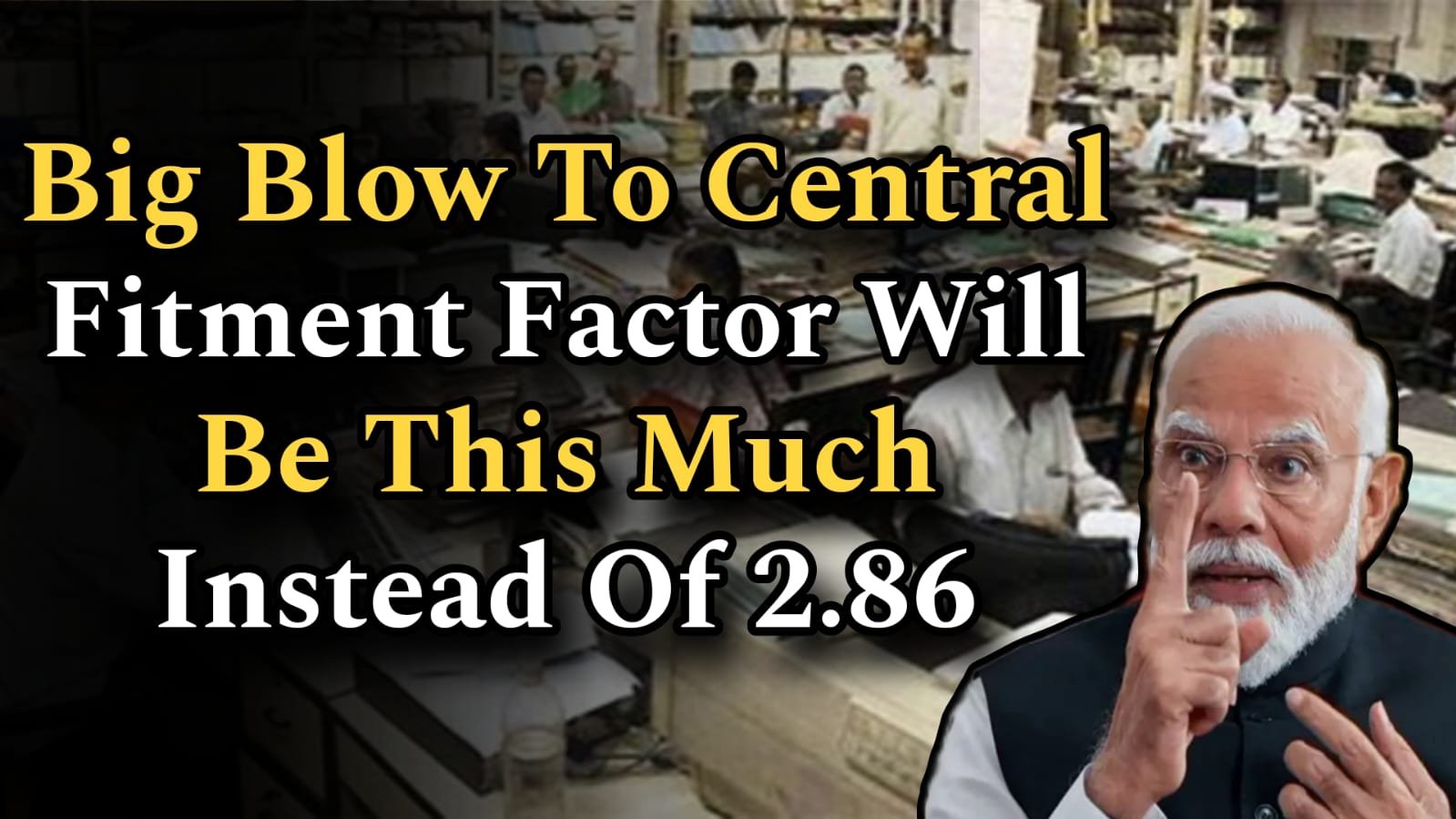8th Pay Commission : If you are a central government employee, there’s important news for you regarding the much-anticipated 8th Pay Commission. What was expected to be a moment of relief and celebration has now turned into a source of concern and disappointment for lakhs of central government employees. Many had been hoping for a significant salary hike with the implementation of a new pay commission. However, the latest updates suggest a major setback, particularly related to the fitment factor—a crucial element that determines how salaries are revised under a new pay structure.
8th Pay Commission : Expectations from the 8th Pay Commission
Historically, the Indian government sets up a new Pay Commission every 10 years to revise the salary structure and allowances of central government employees and pensioners. The last commission—7th Pay Commission—was implemented in 2016, and it is now nearing a decade since its introduction. Naturally, central government employees across the country are eagerly waiting for the formation and implementation of the 8th Pay Commission.
A key area of focus for employees has been the fitment factor, which is used to calculate the revised salary based on the current basic pay. In simple terms, it’s a multiplier applied to the existing salary to determine the new pay. Under the 7th Pay Commission, the fitment factor was 2.57, and employees were hoping that the 8th Pay Commission would recommend a higher factor, ideally around 2.86.
8th Pay Commission : Disappointment Over Fitment Factor Cut
However, recent reports indicate that this expectation might not be fulfilled. The fitment factor under the 8th Pay Commission is now likely to be fixed at 1.92, much lower than the anticipated 2.86. This decision, if finalized, will directly impact the salary hike that central government employees were expecting.
According to several media and financial reports, the government is considering the financial burden that a higher fitment factor would place on the exchequer. Implementing a 2.86 fitment factor could significantly increase the government’s salary expenditure, which is already under pressure due to multiple welfare schemes and infrastructural commitments. As a result, the decision to keep the fitment factor limited to 1.92 seems to be a compromise between financial sustainability and employee welfare.
8th Pay Commission : Impact on Salary Calculations
Let’s understand how this change in the fitment factor could affect the take-home salary of employees.
Currently, a Level 1 central government employee receives a minimum basic salary of ₹18,000 per month. Under the expected 2.86 fitment factor, the revised salary would have been:
₹18,000 × 2.86 = ₹51,480 per month
This would have meant a significant increase in income, providing better financial security and improved standard of living.
However, if the fitment factor is limited to 1.92, the revised salary will be:
₹18,000 × 1.92 = ₹34,560 per month
This results in an increase of just ₹16,560, which is considerably lower than what employees were expecting. The reduced fitment factor will not only affect current employees but also retirees, as their pensions are also calculated based on the same structure.
8th Pay Commission : Status of the 8th Pay Commission
As of now, the 8th Pay Commission has not been officially formed. However, reports suggest that the process of setting up the commission is underway. Once formed, the commission will assess various parameters, conduct surveys, and consult stakeholders before submitting its recommendations to the central government.
If everything proceeds as per the traditional timeline, the 8th Pay Commission could be implemented by the end of 2026 or early 2027. Until then, any revisions or salary hikes would continue to be governed by Dearness Allowance (DA) increases and not a full pay scale revision.
It is worth noting that over one crore central government employees and pensioners are expected to benefit directly once the 8th Pay Commission is implemented. Therefore, the stakes are quite high, and even small changes in the recommendations could have a huge impact on public finances and individual incomes.
Dearness Allowance Hike Expected from July 2025
In the absence of the new Pay Commission, the government continues to offer relief to employees in the form of biannual Dearness Allowance (DA) hikes. DA is revised twice a year—in January and July—based on the All India Consumer Price Index (AICPI) data.
As of now, central employees are receiving a 55% DA. Based on inflation trends and provisional data, it is expected to rise to 59% in the July to December 2025 cycle. This would mean a 4% increase, continuing the trend of inflation-adjusted increments in employee income.
However, the final DA hike decision will be made only after AICPI data for June 2025 is released. This data reflects retail inflation across India and helps the government decide the quantum of DA hike necessary to keep salaries in line with the cost of living.
Conclusion: Mixed News for Government Employees
To summarize, the latest developments regarding the 8th Pay Commission bring a mix of hope and disappointment:
-
Hope, because the process to form the commission has started, and millions of employees and pensioners may benefit in the coming years.
-
Disappointment, because the expected fitment factor of 2.86 is unlikely, and the government may cap it at 1.92, limiting the salary increase.
While DA hikes will continue to provide interim relief, employees will need to manage their expectations regarding the overall salary revision. As the government balances financial discipline with employee welfare, only time will tell whether these early projections hold true or if the employees’ demands are taken into further consideration during the final recommendations.
Until then, central employees will keep a close eye on updates from the Finance Ministry and any official announcements related to the 8th Pay Commission.



